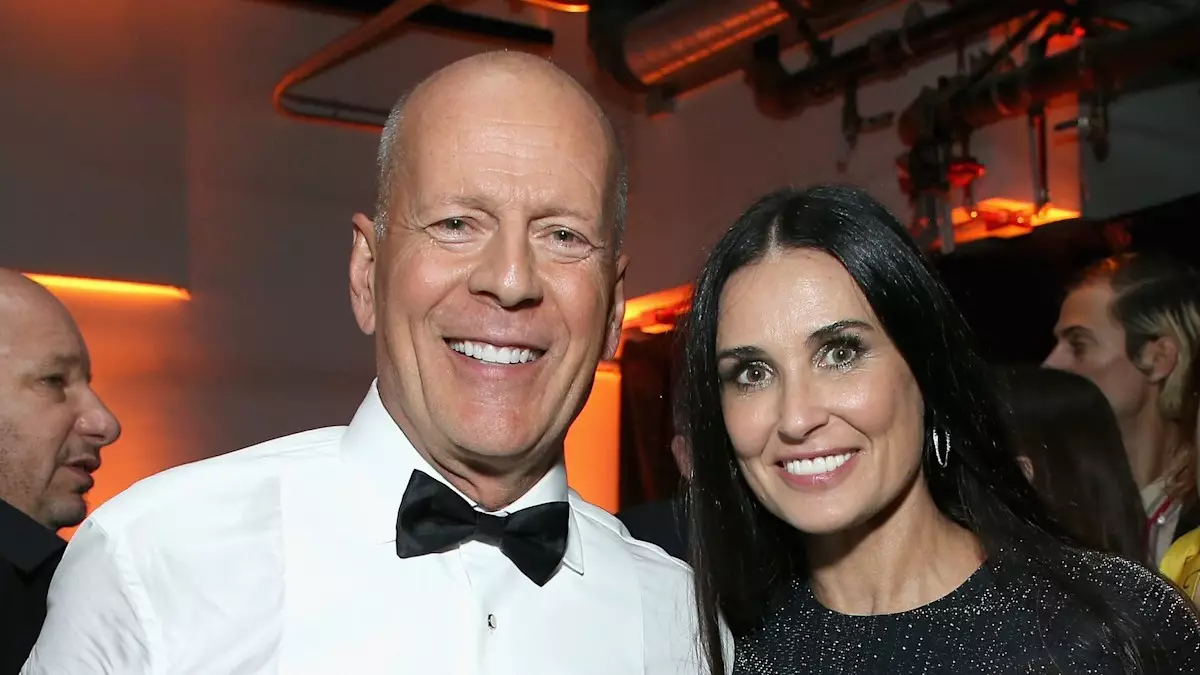Demi Moore and Bruce Willis exemplify the concept of a blended family, showcasing that familial ties can endure and even thrive despite separation. Their remarkable story illustrates how co-parenting can be a loving and supportive journey, defying conventional assumptions about divorce. Even after more than two decades since their split, Moore and Willis have maintained a strong familial connection, especially as they navigate the complexities of health issues and familial responsibilities together. With three daughters—Rumer, Scout, and Tallulah—the couple has cultivated an atmosphere of unity, effectively transforming their family dynamic into a functioning and cooperative unit.
This nuance of family extends even to their roles as grandparents, with Rumer’s child, Lou, further enriching their family tapestry. Moore’s recent reflections on her relationship with Willis highlight a deep-seated commitment to show up for loved ones during challenging times, a sentiment that resonates powerfully in today’s world where family structures are often scrutinized. She acknowledges that her bond with Willis remains intact, and this mindset has become a cornerstone of her approach to family life.
A Support Network in Difficult Times
The recent health challenges faced by Bruce Willis have intensified the need for this cooperative dynamic. Since his initial diagnosis of aphasia and subsequent confirmation of frontotemporal dementia, the significance of familial support has never been clearer. Moore has taken an active role in this support system, making weekly visits to Willis and ensuring that their daughters, as well as his wife Emma Heming, feel a sense of solidarity amid uncertainty. “We will always be a family, just in a different form,” she affirms, a testament to her belief that love and responsibility can persist even when traditional definitions of family no longer apply.
The duo’s journey reveals an essential narrative about the importance of being present for loved ones in times of medical crises. In addressing Bruce’s progressive condition, Moore emphasizes the need for empathy and understanding. Her insights not only illuminate her personal experience but also encourage others facing similar circumstances to foster love and connection rather than allowing despair to dictate their interactions.
Moore’s perspective serves as a message of hope, emphasizing that “there is life after divorce.” Her comments resonate particularly in an era where divorce and separation are often seen as final, leading to cleansed familial relations. Moore actively works to ensure that her daughters witness and understand the idea that familial love transcends marital status— a belief she wants to pass down to future generations.
In parallel, Bruce’s wife, Emma, grapples with the nuances of their children’s emotional reactions to their father’s diagnosis. Her candidness about the situation emphasizes the need for open dialogue, even when dealing with difficult subjects. Teaching her children about frontotemporal dementia ensures that they are informed and prepared to face the realities of their father’s condition, fostering resilience in a situation where uncertainty prevails. Emma’s decision to forego sugarcoating the conversation signifies the healthy approach she takes towards navigating this challenging chapter.
The symbiotic relationship between Demi Moore, Bruce Willis, and Emma Heming reflects a progressive understanding of family in modern times. Their interactions not only redefine traditional norms but also illustrate how love and dedication manifest in various forms. As they each adapt to the complexities of Bruce’s health, they collectively embrace the shifting dynamics of their family structure while remaining anchored in emotional support and personal care.
Ultimately, the narrative of Demi Moore and Bruce Willis serves as a powerful reminder that family is not merely about physical proximity or legal bonds. The story they tell is one of commitment, tenacity, and an unyielding belief in facing adversity together, showcasing that true family is characterized by love and support regardless of life circumstances. With this understanding, they effectively demonstrate how it is possible to create a cohesive family unit, even amidst the turmoil of life transitions.
